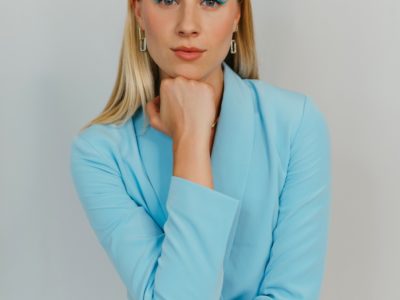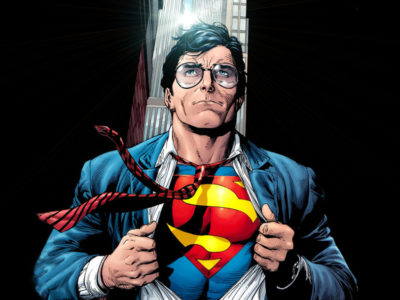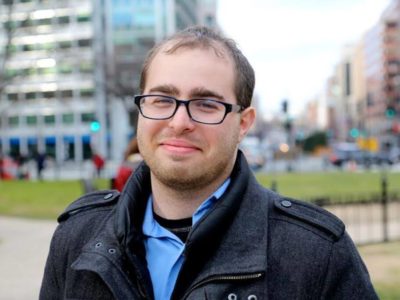Picture this: you sit in one of your lectures during the semester leading up to graduation. As you look around and take notes, something scary pops into your head. You realize this major that you studied for years does not relate to your dream career at all. You begin to stress out and wish you could somehow press reset on the past four years. Rather than spiraling into an existential crisis, take a deep breath. The situation may not seem as terrifying as it looks.
Florida Atlantic University graduate Emma Oleck experienced a similar feeling. Rather than giving up, she immediately started doing everything in her power to achieve her dreams. Despite graduating with a degree in neuroscience, Oleck now works in the glamorous world of New York City fashion. She wants to share exactly how she did it and that you shouldn’t feel discouraged.
READ ON TO LEARN MORE ABOUT EMMA OLECK’S CHANGE FROM NEUROSCIENCE TO FASHION.
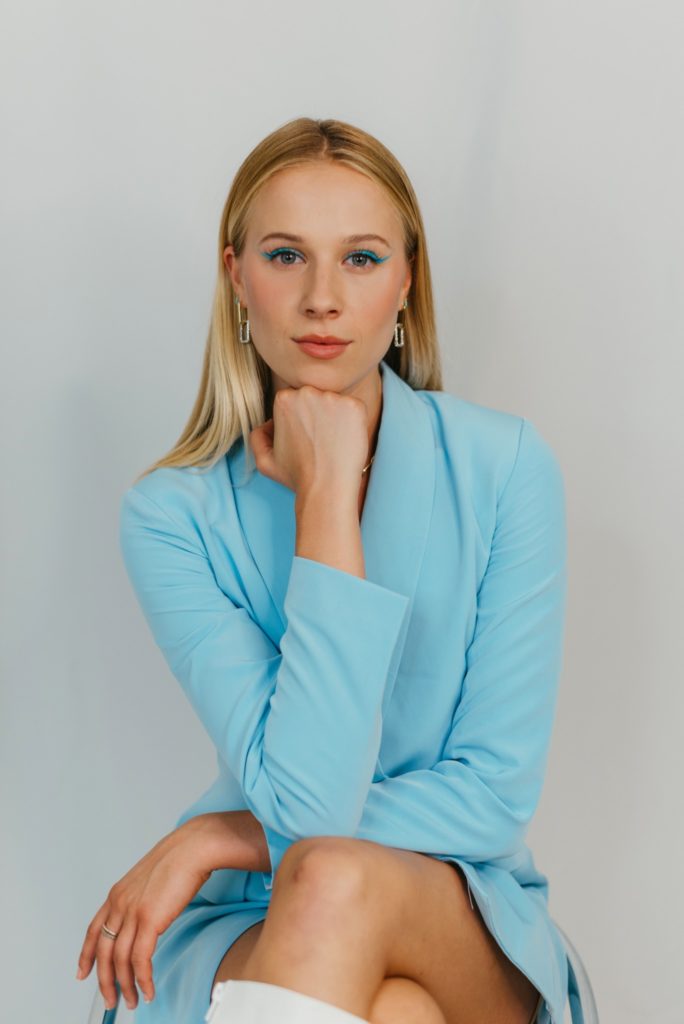
Q: Where did you go to school, and what did you major in?
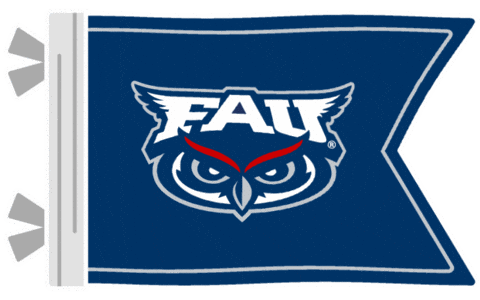
EO: I went to Florida Atlantic University. I actually started as a biology major but changed to neuroscience a couple of years in. I was really interested in the brain.
Q: What led you to choose the medical path?

EO: There were a lot of reasons. I grew up competitively figure skating and training for the Olympics. I was constantly getting hurt which familiarized me with the medical side of the sport and how the body heals from injuries. I also went to a medical high school, not for any particular reason just because it was the best school in my district, so I already knew a lot about it.
I also just love to help people. My dad, actually, passed away from cancer, so I know what it feels like to have someone you love be affected by a disease. I wanted to help in some way.
Q: Did you consider pursuing figure skating as a career?

EO: Yes, I was a part of Team USA, and I was training for the Olympics. But I ended up breaking my back, and my only options were to have surgery or quit; I did neither, but we’re still walking, so it’s okay.
After leaving the team, I decided I still wanted to [figure] skate professionally, so I started skating for the Royal Caribbean cruise line. Being on the cruise ship was one of the first times I was surrounded by such creatively talented people. I felt like it inspired me.
I was kind of deciding what I wanted to do next: continue to skate or go to school. My friend who went to FAU texted me randomly and said she had an open room at her house near campus and wanted me to come and stay with her. I said yes, and then I started taking classes.
Q: Did you ever think about changing your major to something in fashion?

EO: Well, FAU didn’t have any specific majors, or anything really, for fashion. I already knew a lot about biology, and I figured it would be harder to go to medical school with a degree in fashion versus going into fashion with a degree in science.
I loved everything about the [neuroscience] major. I loved the people. They were all so hard-working and supportive. I have no regrets at all. No matter what happens, I will always have this degree, and down the line, it adds another layer to me.
Q: When did you know you did not want to go into a career in medicine? Any specific moment?
EO: I’ve always known I had a deep-rooted passion for all thing’s art, like literature, fashion, photography, cinematography, basically everything involved in creating a magazine. But I think the moment it clicked was, one day I was sitting in one of my biology classes, and I thought to myself, ‘This is not me, I like it, I care about it, but this is not what I resonate with.’ I knew I would have to at least try and pursue fashion.
Q: What did you do to learn more about fashion?
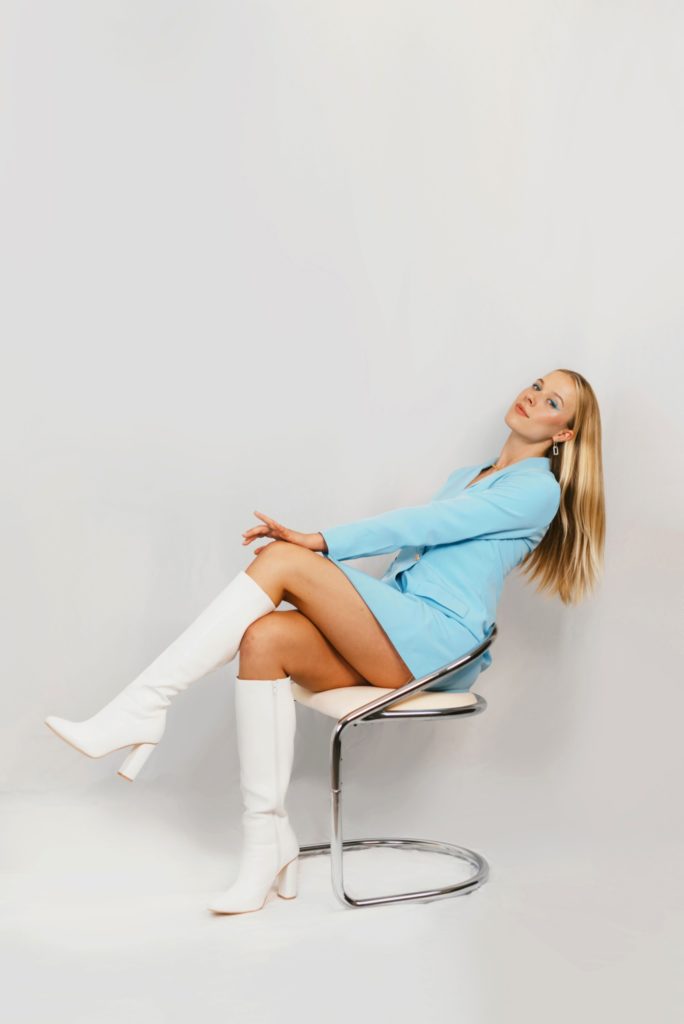
EO: I saw something about [the student-run fashion magazine] Strike Magazine at Florida State University on my friend’s Instagram and looked into it. FAU didn’t have any organizations or clubs for creative expression, I honestly was thinking about transferring, but I realized this is exactly what the school needs. I have a twin sister who went to UF, and I knew they had the same magazine there, so I reached out to my friend about starting one here. She told me to message the founder of the magazine, Hannah. I basically begged her to help because I knew I was capable of creating and bringing something amazing to FAU.
She told me I needed to find a creative director and an external director, and I could get started. But it was literally my first semester, and I didn’t know many people, but I had to make it happen.
I added a minor in entrepreneurship management to learn more about starting and running a business and applied to a bunch of fashion internships for the summer. I ended up getting two internships in New York City, and I gained a ton of experience.
In the fall, I came back to campus and printed like five million posters about Strike and posted them all over campus. I also went to random classes, sororities, literally anywhere to talk to them about the magazine. After interviewing people, we ended up getting a staff of 70 people the first semester.
Q: How did Strike Magazine help solidify the decision to pursue fashion?
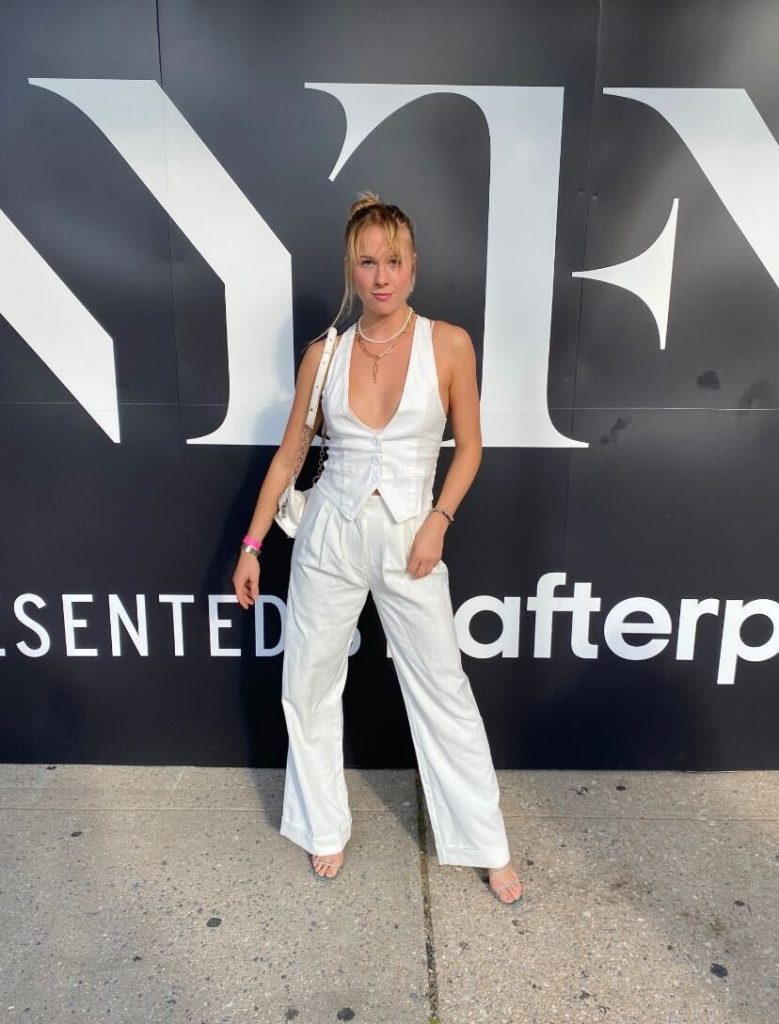
EO: It cultivated an environment of this huge community of schools all over the nation that wanted to express themselves and promote creativity. [Strike] helped me find people who shared similar passions and gain valuable experience in fashion. Now, I am the Chief Executive Advisor for Strike Headquarters and help onboard chapters nationwide. It was a crazy journey but also amazing, and I’m so grateful for it.
Q: What do you do for work now?

EO: I currently have two jobs in fashion in New York City. I work for VMAG, and I am a fashion assistant at Hearst Media, which is the company for ELLE, Cosmopolitan, Esquire, all of that.
Q: Do you feel like studying neuroscience helps you in your current careers at all?
EO: It’s actually funny because I started working with a health magazine within the company, and I feel like I can really add to it because I literally studied the topic.
Q: Did you ever experience any doubts or challenges about your change in major?
EO: I was kind of nervous because I know a lot of people see fashion as a superficial industry, and it terrified me to think I was not doing enough to help people and the world. I’ve had a lot of exposure to underprivileged people like people with illnesses or in poverty, and I felt like I wouldn’t be doing enough.
But fashion does help people in such a deep way. You are creating art for yourself and the world, and art changes lives. I can also still help people in other ways through volunteering.
I sort of had a mental shift. I realized that my career doesn’t have to be the only thing in my life. It doesn’t define the kind of person I am or the kind of life I live. And that helps keep me grounded and gives me more confidence.
Q: What advice would you give current college students who might not want to work in the field they already started studying?
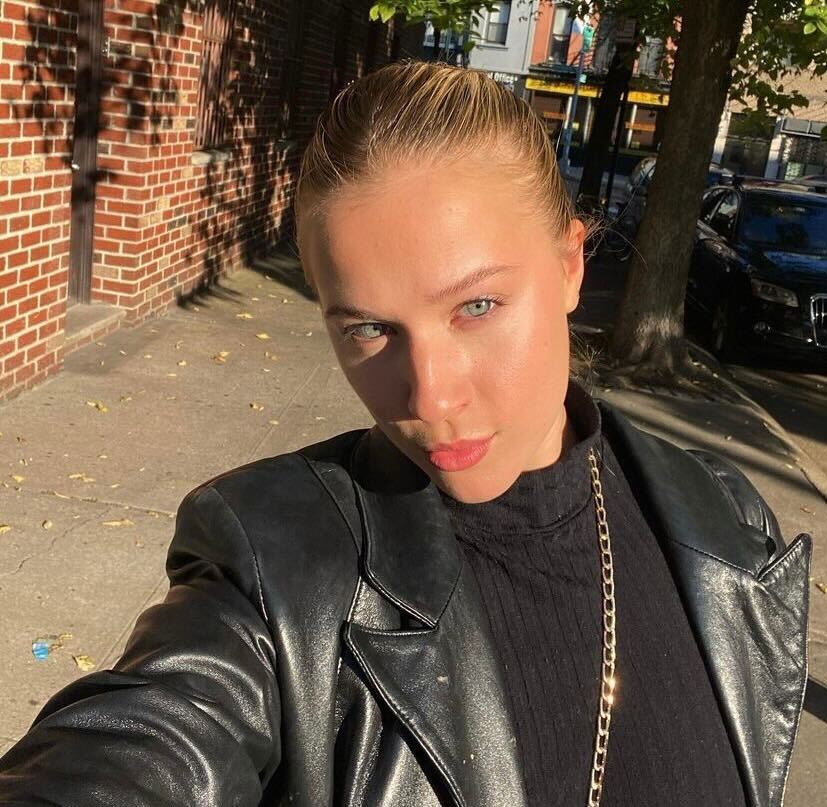
EO: My mind immediately wants to say something deep like ‘Do what makes you feel like your soul is on fire’ or ‘Do what you want to do regardless of your major or background.’
But in a realer sense, college only matters to a certain extent, you learn everything through hands-on experience, and in most fields, people value experience so much more than what you did in college and what degree you got.
So, I think I would say, first of all, don’t freak out. Just immediately start looking for some way to get hands-on experience in what you want to do and network the s—t out of it, whether it be internships, entry-level jobs, part-time jobs, whatever.
The bottom line is to do what you want, do what feels right for you, and get some hands-on experience. The connections that you make are literally vital. Every single person I’ve talked to regarding hiring does not care that I majored in neuroscience. They look at my internships and work-related experience. It’s all about what you do and what you have on your resume.
The specific time you need to know exactly what you want to do with your life does not exist. The realization might hit you at any point. However, when it does, take a deep breath and start figuring out the path to get there. Oleck’s story proves that if you love something so much you can’t stop thinking about it, then do everything you can to make the dream a reality.
Contact Emma Oleck:
Instagram: @emmaoleck

